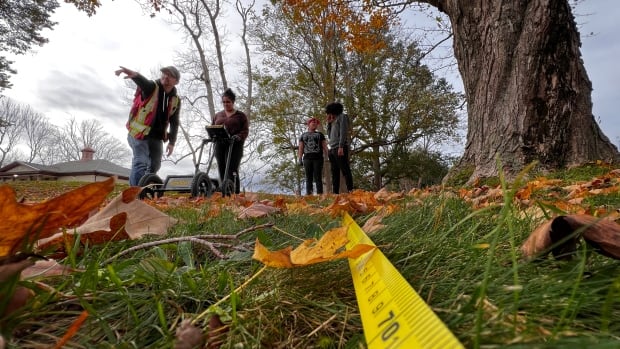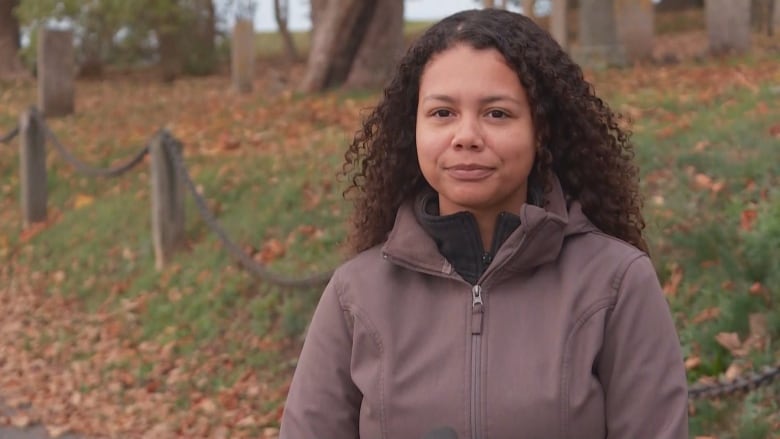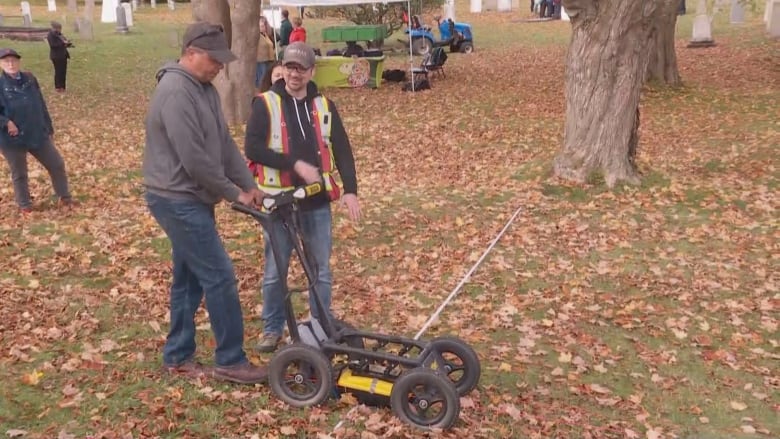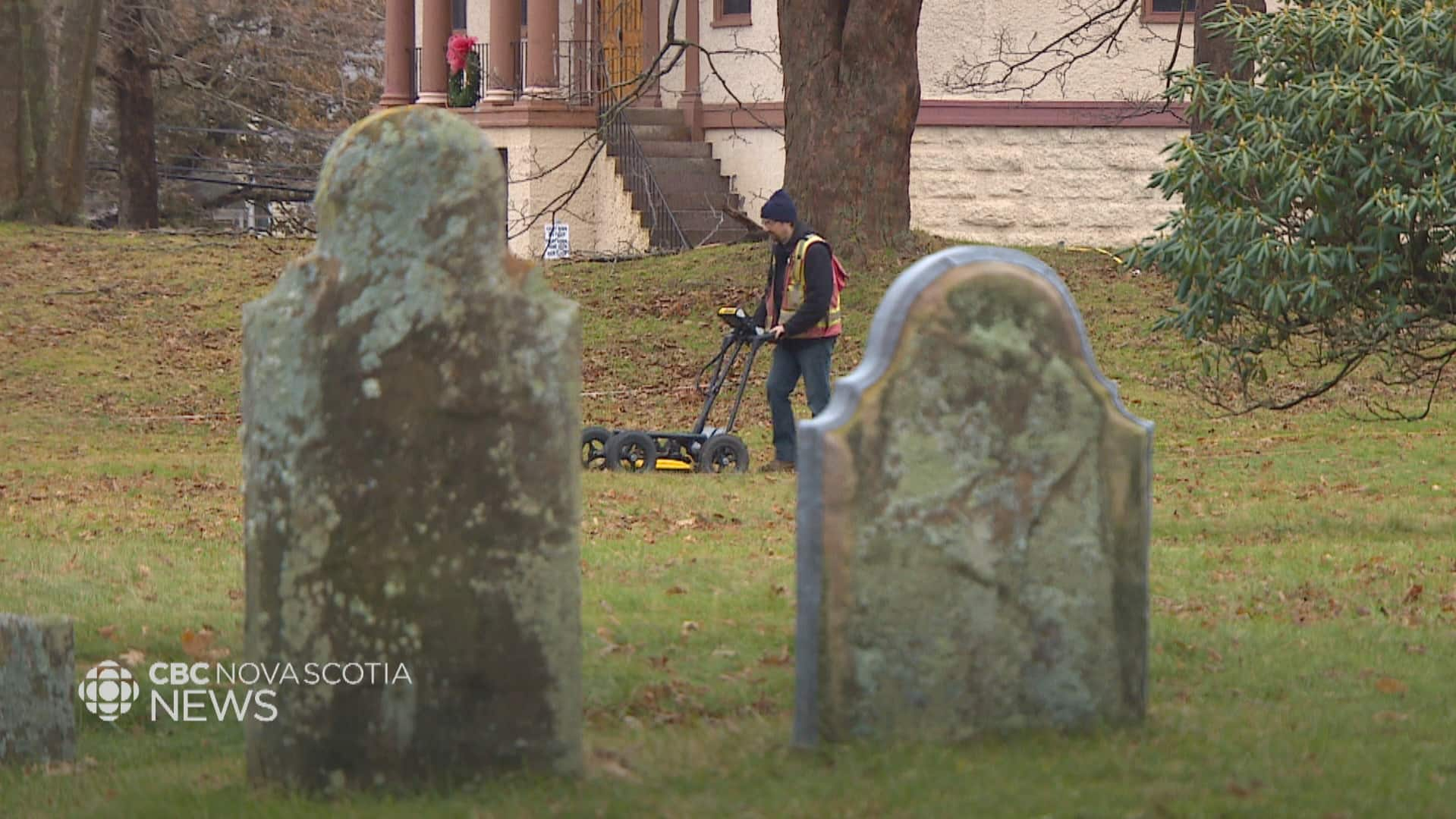
Ground-penetrating radar technology is being used to find the unmarked graves of Black Loyalists at the Fort Anne National Historic Site in Annapolis Royal, N.S.
Black Loyalists supported the British during the American Revolutionary War beginning in 1775. Thousands of them settled in Nova Scotia. The search for their graves took place Monday at Fort Anne’s Garrison Graveyard.
“Today is literally about uncovering some of their history we may not have known before,” said Micha Cromwell, a descendant. “For example, I grew up here and had no idea there was a section of the graveyard that had Black Loyalists and their descendants buried.”
The group leading the search has evidence in church records and oral history that at least 25 Black Loyalists, like Rose Fortune, were buried there. During the search, they spotted some anomalies in the ground but more analysis is needed to confirm any graves.
Cromwell is part of Mapannapolis, the Annapolis County volunteer non-profit that partnered with Parks Canada on the grave search.
“They were quite happy with what they saw but weren’t prepared to say what it was until an analysis is complete,” said Heather LeBlanc, the project manager for Mapannapolis.
Ground-penetrating radar technology is being used to find the unmarked graves of Black Loyalists at the Fort Anne National Historic Site in Annapolis Royal, N.S.

LeBlanc said the results of the analysis should be ready in the next few months.
According to a news release, the radar “works by sending an electromagnetic pulse into the soil and then recording the echoes that result from buried objects.”
The radar “can also detect variations in the composition of the soil itself, for instance indicating whether or not that soil has been disturbed.”
Similar technology was used to uncover Acadian graves in 2019.

Lolita Cromwell, Micha’s mother, said she never learned about Black Loyalists in school, but had heard stories about her ancestors that were passed down through her family. She said she’s “blown away” by the grave search and efforts by volunteers to help educate people on Black Loyalists.
“Finding out stuff is great. It’s exciting,” she said.
Micha Cromwell said Black Loyalist history deserves more recognition in Canada. Her Black Loyalist family arrived in Nova Scotia in the 1700s.
“I knew about the Acadians and the British, but I had no idea some of my people were here as well so I think it’s really important to get a broader picture of the history.”
For more stories about the experiences of Black Canadians — from anti-Black racism to success stories within the Black community — check out Being Black in Canada, a CBC project Black Canadians can be proud of. You can read more stories here.

